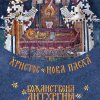Main Areas: Quality Self Publishing
Best Sellers: The Nursing Home Crisis, Defeat Foreclosure, Sleep Seekers, Kosovo, A Brief History of Serbian Music and Jasenovac Then & Now: A Conspiracy of Silence
Career Focus: Publisher, Author, Editor
.Our mission at GMBooks.com is to provide a secure and supportive environment for either first-time or experienced authors who wish to see their manuscripts come to fruition rapidly and without the traditional delays or worse, abandonment of a property by a major publisher.
By selecting GM Books you are assured of an association with a full service company in which you are a participant in the publishing process and in total control of the development of your manuscript through our professional guidance.
Founded in Los Angeles in 1984 by Anita and William Dorich, the company was formed to offer an alternative to hundreds of rejection letters and the pitfalls of conventional publishing in which the author surrenders all creative and editing rights. Unlike the usual 10% royalty offered by major publishers, our authors receive up to 60% of the net proceeds from the sale of their book.
William Dorich brings to GM Books 26 years of printing experience and a background in commercial photography. As the author of 5 books on Balkan history and music, his own venture into self-publishing became the impetus for forming the company. His 2008 book is Defeat Foreclosure to aid homeowners in saving their home. His in 2009 is, The Nursing Home Crisis. His current books is Sleep Seekers: A Reference Guide for Insomniacs and Serbia: Faces & Places.
Anita Dorich, Editor, Research and Project Director for GM Books, received a BSW from San Francisco State University and has had postgraduate training at U.C. Berkeley and U.S.C., with a background in professional counseling in the motion picture industry. She joined GM Books in 1991. Her expertise is in assisting and guiding the creative personality. She has overseen editing and production on more than 40 titles and is currently writing her own book.
From Selfgrowth
About the Author "A Brief History of Serbian Music"
William Dorich is a Los Angeles publisher specializing in self-publishing since 1985. He is also an American-Serb journalist. He is the author of 5 books on Balkan subject including: "Serbian Genocide 1941-45" (1991), "Kosovo" (1992), the first book published in the U.S. on this region of the world; "The Suppressed Serbian Voice and the Free Press in America" (1994), "A Brief History of Serbian Music" (1996, 1998), and "Hilandar's Octocentenary" (1999) which commemorates the 800th anniversary of the Hilandar Monastery founded on Mt. Athos, Greece.
Second Edition—A Brief History of Serbian Music covers the last 100 years in which the Serbian people miraculously developed and mastered musical composition after 412 years of Ottoman slavery in which the Turkish occupiers of the Balkans prevented Serbs from obtaining an education, forbid them to learn to read and write, and even denied them the use of musical instruments. In the 15th century the Serbs, in desperation for musical expression, create a silent kolo (dance) to the syncopation of their footsteps surviving this immoral oppression much like Jamaicans resorted to the use of steel drums.
During 400 years of Muslim oppression in the Balkans the Serbs maintained their history through folk poems and songs and preserved 5 centuries of their history orally.
The most powerful figure in the 19th century in making Serbian folk poetry known to Europe was Vuk Karadzic, whose efforts resulted in Goethe's translation of many Serbian works. Goethe was so found of the Serbian people he learned to speak their language and to read the Cyrillic alphabet, taught to the Serbs by SS. Cyril and Methodius in the 800s. It was Goethe's influence that convinced Brahms to compose his famous lullaby based on a Serbian folk poem. Other composers like Loewe and Joseph Maria Wolfram also composed works based on Serbian folk songs.
Vilijam Dorić Todorović je rođen 1939. u Zapadnoj Virdžiniji, u porodici Todorović iz Krajine. Školovao se za novinara i rano počeo da piše. Kolumnista je američkih glasila i od 1985. vlasnik izdavačke kuće “GM books”. Autor je šest knjiga, od kojih je posljednja foto-monografija o Srbiji na engleskom. Nosilac je Ordena Svetog Save.





